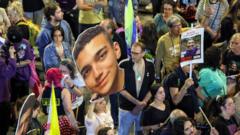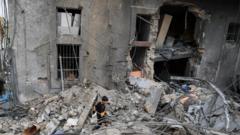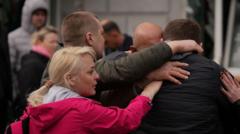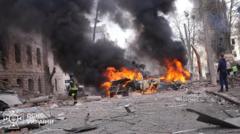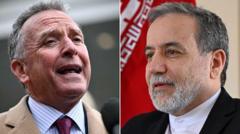The death of Rifaat Radwan, a 23-year-old Palestinian paramedic shot by Israeli troops, has left profound grief in his family and raises questions about the treatment of humanitarian workers in conflict zones. As calls for an independent investigation grow, the paramedic's mother shares the haunting memories of her son's final moments and the impact of his loss on their family.
Heartbreak Amidst Conflict: The Tragic Loss of a Gaza Medic
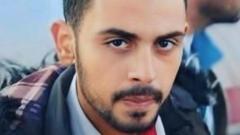
Heartbreak Amidst Conflict: The Tragic Loss of a Gaza Medic
A mother mourns her son, a paramedic killed while serving in Gaza, highlighting the perilous conditions faced by emergency workers amid ongoing violence.
My heart shattered into pieces when I learned of Rifaat's death," shares Hajjah Umm Mohammed, the grieving mother of a Gaza medic who was among 15 emergency workers killed by Israeli forces last month. Rifaat Radwan, just 23, tragically lost his life while responding to an emergency in a Palestinian Red Crescent Society (PRCS) ambulance on March 23, when gunfire erupted in southern Gaza. "We never thought such a thing could happen, especially in a 'green' area marked as safe for ambulances," she laments.
The Israeli military's initial response claimed that the convoy approached suspiciously in the dark. However, upon investigation, video evidence found on Rifaat's phone contradicted this, showing that the ambulance had its lights on while responding to distress calls. "Forgive me, mother... this is the path I chose to help people," Rifaat’s voice echoes in the footage, a final message that underscored his dedication to humanitarian work before he was killed.
Umm Mohammed recalls the heartbreak of not being able to celebrate Eid with her son but instead collecting his body from the hospital. "Instead of preparing for festivities, we went with the Red Cross to retrieve his decomposed remains,” she reflects. Grieving yet proud, she recounts how Rifaat devotedly transported the wounded, sacrificing his safety for others during escalated violence in Gaza.
The video footage spurred a shift in the Israeli army’s narrative, which now claims that the convoy posed a threat due to previous engagements and alleges that some of those killed were Hamas operatives, though no evidence has been presented. "We demand justice for these victims; humanitarian workers should never be targets,” implores PRCS spokeswoman Nebal Farsakh, as she highlights a pattern of attacks against health workers.
Among the survivors is paramedic Munther Abed, who recalls the harrowing moments of the attack. “I dropped to the floor; the last sounds I heard were the gasps of my colleagues as they succumbed to their injuries,” he recounts. He was detained following the incident, enduring interrogations while his comrades' fate was sealed.
The IDF has pledged a thorough investigation, though skepticism looms over their commitment as they face allegations from the PRCS regarding the targeting of medical personnel. With over 50,000 casualties reported in Gaza since the onset of the conflict following the Hamas attack on October 7, the human toll continues to escalate, deepening the urgency for accountability and protection for those who risk their lives for others.
The war's devastating impact reverberates through families like Umm Mohammed's, where grief mingles with calls for justice, raising poignant questions about the protection of humanitarian workers amidst conflict.



